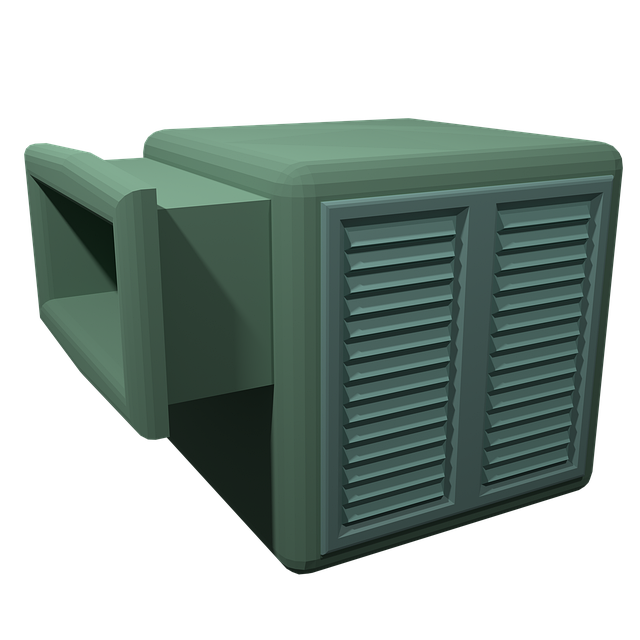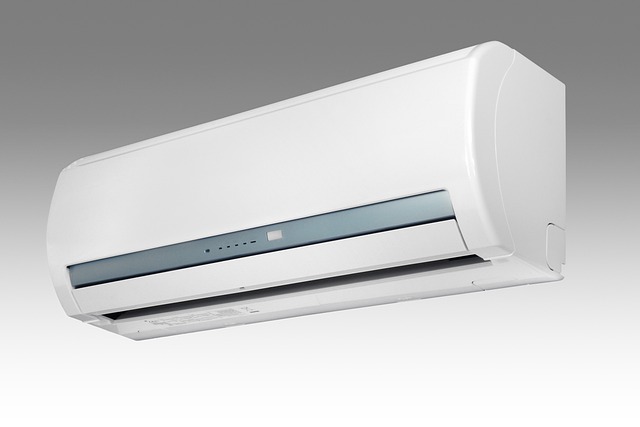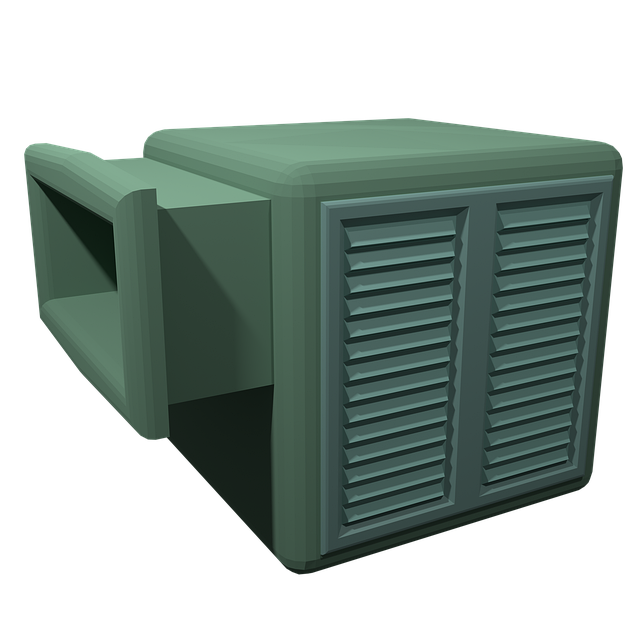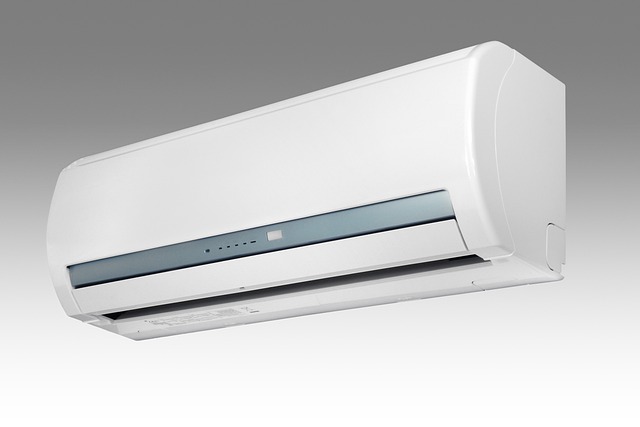In Fort Collins, CO, residents must contend with significant seasonal climate changes, necessitating a high-performance HVAC system to manage the extremes of summer heat and winter cold. It's crucial for locals to select an efficient, reliable HVAC system that considers their home's size, insulation, and energy usage for optimal performance and cost savings. High-efficiency furnaces paired with smart thermostats are recommended to maintain warmth and manage energy consumption effectively. Fort Collins' unique high-altitude climate demands systems tailored to handle the dry air and potential need for supplemental heating during extreme cold snaps. Homeowners should weigh the initial costs against long-term operational expenses when choosing between gas furnaces, electric systems, or eco-friendly options like geothermal systems. Consulting with Fort Collins HVAC professionals is essential for personalized advice to ensure that the chosen system meets local environmental demands and household needs. Regular maintenance by these experts also ensures peak performance and prevents costly repairs during the winter. Additional energy savings can be achieved through improved insulation, weather-stripping, smart thermostats, and upgrading to higher SEER rating HVAC systems. These measures not only enhance comfort but also contribute to significant reductions in heating costs throughout the colder months.
When winter’s chill sets in across Fort Collins, ensuring a warm and cozy home becomes paramount. This article delves into the essentials of installing heating systems tailored to withstand the region’s cold temperatures. From comprehending your unique heating requirements to selecting the most suitable system for Fort Collins homes, our guide illuminates the path. We also offer a detailed step-by-step process, featuring insights from local Fort Collins HVAC experts, to ensure a seamless installation. Additionally, maintaining and optimizing your new system’s efficiency is covered, ensuring you stay comfortable through the frosty season.
- Understanding Your Heating Needs in Fort Collins Climate
- Evaluating the Best Heating System Options for Fort Collins Homes
- Step-by-Step Guide to Installing a Heating System in Fort Collins with Fort Collins HVAC Experts
- Maintaining and Maximizing Efficiency of Your New Heating System in Fort Collins Winters
Understanding Your Heating Needs in Fort Collins Climate

Residents of Fort Collins, Colorado, are well-acquainted with the stark contrast between the region’s warm summers and the bitterly cold winters. To effectively navigate these climate extremes, a comprehensive understanding of your heating needs is paramount. Homeowners in this area must consider the harshness of the winter months, where temperatures can plummet below freezing for extended periods. The right heating system, tailored to Fort Collins’ unique environment, not only ensures comfort but also safeguards against potential property damage from freeze-ups and ice formation.
Fort Collins HVAC systems are engineered to withstand the high demands of a Colorado winter. A system that is both efficient and reliable is crucial for maintaining a cozy indoor temperature despite the frigid outdoor conditions. When selecting an HVAC solution, factors such as the home’s size, insulation quality, and typical usage patterns must be taken into account to optimize performance and cost-effectiveness. For instance, high-efficiency furnaces with programmable thermostats can offer significant energy savings while providing consistent warmth. Additionally, the integration of advanced technology, such as smart climate control systems, allows homeowners to fine-tune their environment for maximum comfort without unnecessary energy consumption. In Fort Collins, where winter weather is a way of life, investing in a suitable HVAC system is not just a convenience—it’s an essential aspect of maintaining a comfortable and safe living space throughout the year.
Evaluating the Best Heating System Options for Fort Collins Homes

When the frosty winds of a Colorado winter start to howl, Fort Collins residents turn their attention to heating solutions that offer efficiency, reliability, and comfort. The unique climate of Fort Collins requires HVAC systems that can perform optimally across its range of temperatures. Homeowners in this region must evaluate various heating system options to ensure they choose the best fit for their homes. Radiant floor heating and high-efficiency gas furnaces are particularly popular among Fort Collins HVAC choices due to their energy efficiency and consistent warmth. Geothermal systems, harnessing the stable Earth temperatures, also present an environmentally friendly option for those looking to reduce their carbon footprint while maintaining cozy interiors.
In the market for a new heating system in Fort Collins? It’s crucial to consider the specific needs of your home and the local climate conditions. The high-altitude and often dry air can affect the performance of different systems. For instance, a heat pump might require supplemental heating elements during the coldest days. When comparing options like gas furnaces or electric systems, it’s important to factor in both initial costs and long-term operational expenses. Fort Collins HVAC professionals can provide personalized recommendations based on your home’s size, layout, and energy usage patterns. By carefully evaluating these factors, you can select an HVAC system that not only keeps your home warm but also contributes to overall energy savings and comfort.
Step-by-Step Guide to Installing a Heating System in Fort Collins with Fort Collins HVAC Experts

When the chill sets in, ensuring your home is well-equipped with a reliable heating system is paramount for comfort and safety during Fort Collins’ cold winters. A step-by-step guide to installing a heating system with the expertise of Fort Collins HVAC professionals can demystify the process and help you make informed decisions about your home’s climate control needs. The first step in the installation process is careful planning and selection of the appropriate heating system for your home’s size, insulation, and energy usage patterns. Fort Collins HVAC experts will assess these factors to recommend a system that balances efficiency, effectiveness, and cost-effectiveness. They will guide you through selecting the right model and size to ensure optimal performance and longevity.
Once the perfect heating system is chosen, the installation begins with precise measurements and positioning to optimize space and energy utilization. Fort Collins HVAC technicians follow industry best practices, ensuring that the new system integrates seamlessly with your home’s existing ductwork or direct-transfer mechanisms, if applicable. They meticulously install all components, from the outdoor unit to the indoor air handler, connecting them with insulated and properly sized ducts to minimize heat loss. Throughout the installation, these professionals prioritize safety, adhering to local building codes and ensuring that all electrical connections are up to code. With their expertise, you can expect a warm and cozy environment as winter’s cold winds blow outside. Trusting Fort Collins HVAC experts for your heating system installation not only guarantees a job well done but also provides peace of mind that your home will be ready to withstand the frigid temperatures of a Colorado winter.
Maintaining and Maximizing Efficiency of Your New Heating System in Fort Collins Winters

In Fort Collins, where the winters can be particularly harsh and cold, maintaining and maximizing the efficiency of your heating system is crucial for comfort and energy savings. Homeowners in this region should consider regular maintenance checks as a key strategy to ensure their HVAC systems operate at peak performance throughout the season. Engaging with local Fort Collins HVAC professionals for routine inspections can prevent issues before they escalate, ensuring that each component of your heating system is functioning optimally. This proactive approach not only extends the lifespan of your system but also reduces the likelihood of unexpected breakdowns during the coldest months. Additionally, upgrading to a programmable or smart thermostat can significantly enhance energy efficiency by allowing for precise temperature control and automated adjustments based on occupancy and time of day, further reducing heating costs.
Maximizing the efficiency of your Fort Collins HVAC system also involves understanding the role of insulation, window sealing, and proper ventilation in conserving heat. Effective insulation can minimize heat loss, while ensuring that windows and doors are well-sealed keeps the warm air inside where it should be. Attic insulation, in particular, is a cost-effective measure that can make a substantial difference in maintaining your home’s warmth without overworking your heating system. Furthermore, investing in energy-efficient HVAC systems specifically designed for the Fort Collins climate can provide even greater benefits. These advanced units often come with higher Seasonal Energy Efficiency Ratio (SEER) ratings, which translate to more efficient operation and lower utility bills. By combining professional maintenance with smart home technology and proper building envelope management, residents of Fort Collins can enjoy a cozy, energy-efficient winter season.
Homeowners in Fort Collins face the challenge of winter’s cold, necessitating reliable heating systems. This article has provided a comprehensive overview, from assessing your heating requirements to exploring top-rated options suitable for Fort Collins homes. With our detailed step-by-step guide, supported by insights from Fort Collins HVAC experts, residents are now well-equipped to make informed decisions. By understanding the importance of proper installation and following maintenance best practices, you can ensure your system operates at peak efficiency throughout the frosty months. Ensuring a cozy and warm environment during the winter is not just about comfort but also about energy savings and longevity of your heating system.
